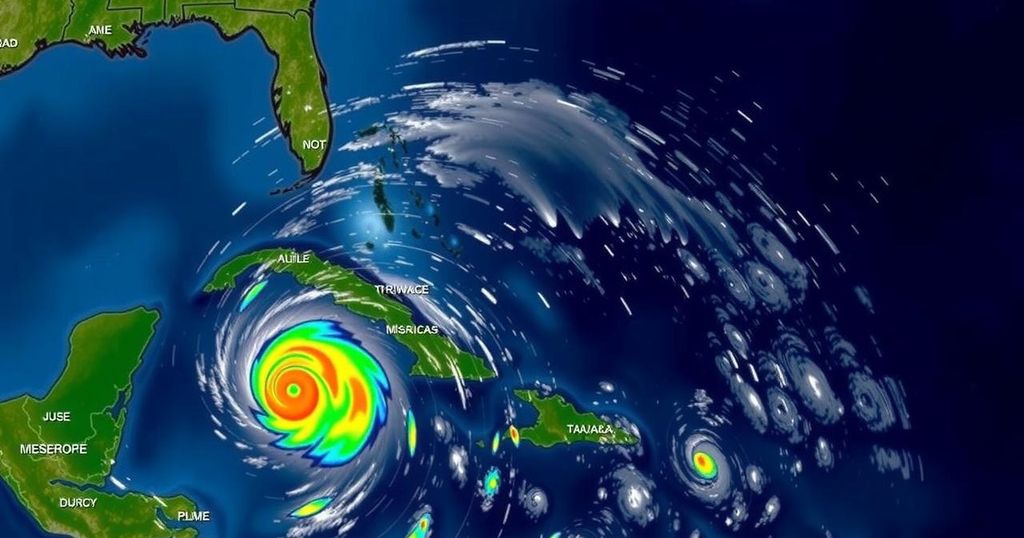Recap of the Record-Breaking 2024 Atlantic Hurricane Season
The 2024 Atlantic hurricane season was historically active, featuring 18 named storms, including 11 hurricanes. Major storms included Hurricane Beryl, the earliest Category 5, and Hurricane Helene, the deadliest since 2005. Notably, Hurricane Milton demonstrated record rapid intensification, while Rafael marked a rare late-season hurricane in the Gulf. This season illustrated a new dynamic in hurricane activity, raising questions about future meteorological patterns.
The 2024 Atlantic hurricane season concluded, setting remarkable records that surpassed initial forecasts. The National Oceanic and Atmospheric Administration attributed this unprecedented season to exceptionally warm sea-surface temperatures and the termination of El Niño conditions, culminating in a total of 18 named storms, including 11 hurricanes, with five reaching major hurricane classification (Category 3 or higher). Comparatively, an average season typically features only 14 named storms and three major hurricanes.
Among the significant events, Hurricane Beryl made headlines as the earliest Category 5 hurricane ever recorded in the Atlantic. The storm caused widespread flooding and power outages in Texas and Louisiana after it weakened from its peak intensity.
Hurricane Helene struck Florida on September 26 as a Category 4 storm and subsequently became the deadliest hurricane in the US since 2005, claiming over 150 lives, primarily in the Carolinas. This hurricane also marked a groundbreaking moment, as it was the first instance wherein a major hurricane was predicted before fully developing.
Another notable storm, Hurricane Milton, intensified dramatically, raising scientists’ eyebrows due to its rapid wind speed increase of 90 mph in just 24 hours. Milton ultimately made landfall as a Category 3 hurricane, causing significant tornado outbreaks and heavy rainfall across Florida.
Additionally, October hosted an unprecedented occurrence: three active hurricanes, Milton, Kirk, and Leslie, coexisting simultaneously in the Atlantic. Notably, Hurricane Rafael maintained strength as it traversed the Gulf of Mexico in November, a rarity, as late-season hurricanes are uncommon. NOAA reported that seven hurricanes formed after September 25, further emphasizing the extraordinary nature of this hurricane season.
The 2024 Atlantic hurricane season was characterized by extreme activity, driven by favorable meteorological conditions, including elevated sea-surface temperatures and the cessation of El Niño. Traditionally, hurricane forecasts rely on historical data, so the scale of the activity this season surprised experts and meteorologists alike. The emergence of numerous substantial hurricanes, including unprecedented early occurrences and late-season storms, underscores a potential shift in meteorological patterns affecting hurricane development.
In summary, the 2024 Atlantic hurricane season proved to be extraordinarily active, challenging previous records established in meteorological history. The season was remarkable not only for its number of storms and hurricanes but also for the unprecedented intensifications and circumstances surrounding their formations. Significant events, such as the early and late seasonal hurricanes, have implications for future hurricane forecasting and emergency preparedness strategies, emphasizing the evolving dynamics of our climate.
Original Source: www.theadvocate.com




Post Comment